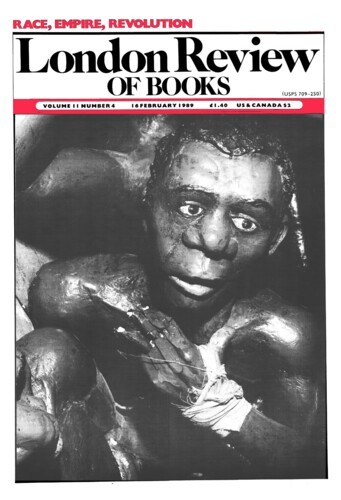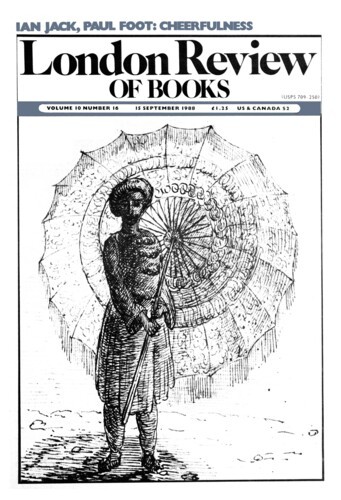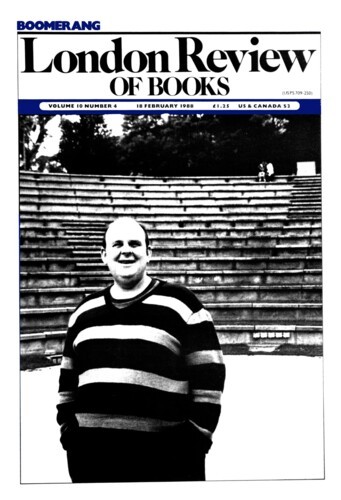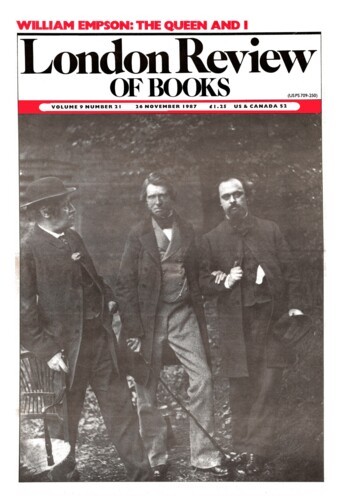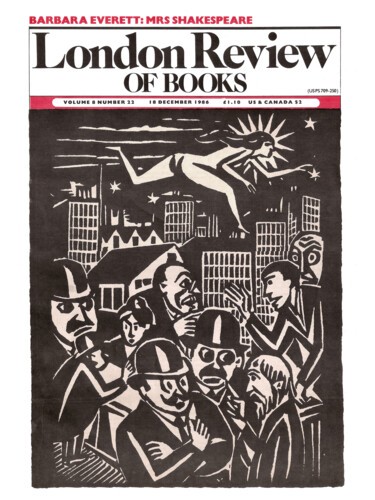Second Wind
C.K. Stead, 16 February 1989
Much of the best poetry in English at least since the Romantics, is, in a controversial phrase used by Allen Curnow in the introduction to one of his two anthologies of New Zealand poetry, ‘local and special at the point where we pick up the traces’. The phrase typically says what Curnow wants it to say – that the poet and therefore the poem are visibly products of a region – while protecting it-self against anticipated complaints that such a view is insular. When I last wrote about Curnow, in 1963, I backed my text with references to an essay by Allen Tate defending regionalism in literature against an internationalist position which Tate cleverly described as ‘the new provincialism’.’
